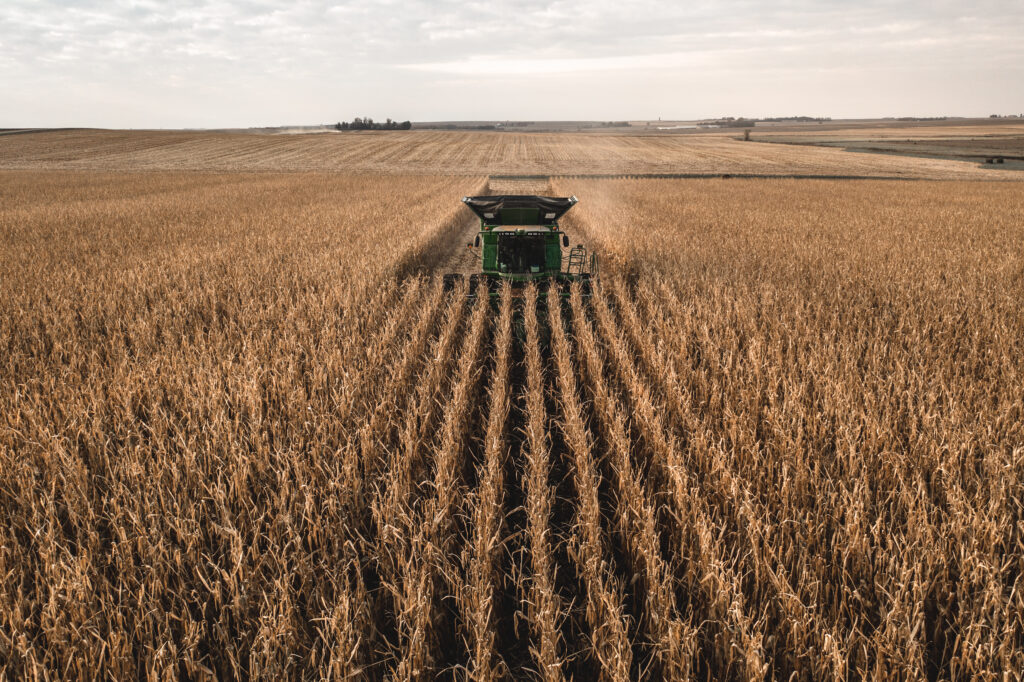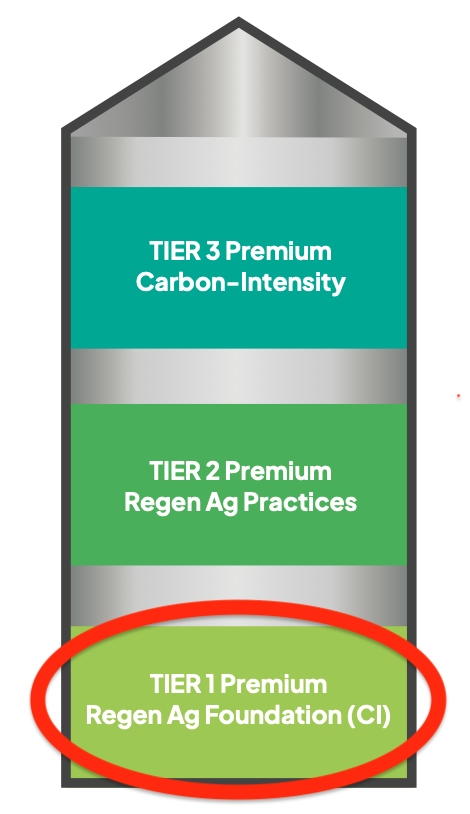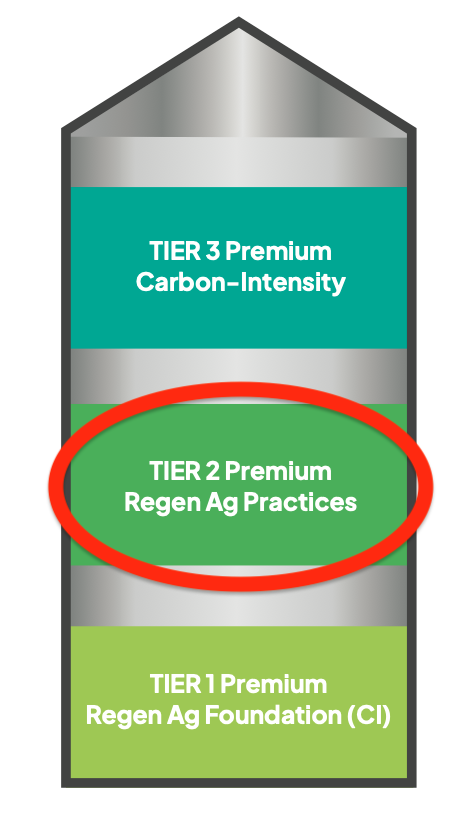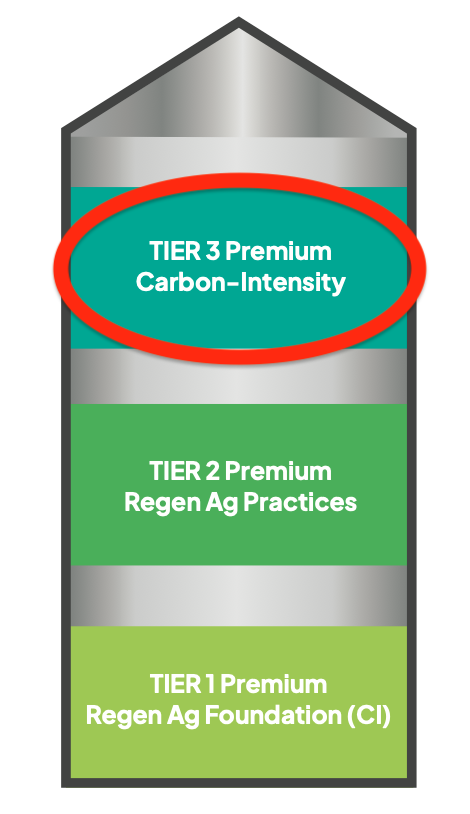Gevo’s Farm-to-Flight Program is tied to a grant from the USDA’s Partnerships for Climate-Smart Commodities, and the project has two goals:
- Create critical climate-smart market incentives for low carbon-intensity corn.
- Accelerate the production of sustainable fuel to reduce the dependence on fossil-based fuels.
With an estimated 435,000 corn acres to be enrolled, the project uses a carbon-inset model that implements a proprietary Verity Tracking technology to measure, record, and verify greenhouse gas attributes and will be the core feature to monetize of carbon reduction. This will allow Gevo to incentivize farmers for the production and delivery of low carbon intensity corn. The feedstock is expected to help Gevo produce low-carbon-intensity ethanol to create SAF to decarbonize portions of the transportation sector that cannot be easily abated through electrification or hydrogen.

To help accomplish the primary goals, Gevo plans to provide incentives to farmers to accelerate the production of sustainable fuels, such as ethanol and sustainable aviation fuel (SAF). By continuing practices farmers are already doing today and establishing new practices, farmers will be able to receive premium payouts via a three-tiered structure of incentives.
TIER 1: Regen Ag Foundation (CI)

- Soil Biological Microbials ($10/acre): Build soil health and soil organic matter by increasing soil microbial activity
- Carbon Soil Amendments ($50/acre): Feed microbials in soil to create a more robust build soil organic matter
- Soil Genomics Testing ($6.50/acre): Reduce synthetic nitrogen applications and reduce carbon intensity
- GIS Data Collection ($4/acre): Collect and transfer data more seamlessly to calculate carbon intensity
TIER 2: Regen AG Practices (to gain additional $/bu)
Note: Using Regenerative Ag Practices can augment per-bushel price premiums for corn.
- Reduced Tillage – leaves crop residue on the soil surface allowing root structure to maintain the soil health
- No-Tillage – conserve soil from wind and water erosion and increases soil organic matter content
- Carbon Soil Amendments – adds Greenhouse Gas (GHG) benefits and encourages natural production of soil organic matter
- Nutrient Management – best management practices that optimize the efficiency of fertilizer use

TIER 3: Carbon Intensity Reductions Below Midwest Average
Note: Carbon intensity reductions yield payments per bushel of corn

- 0–5 CI Reduction average for all bushels of the crop-type: $0.08/bu
- 5–10 CI Reduction average for all bushels of the crop-type: $0.10/bu
- 10–15 CI Reduction average for all bushels of the crop-type: $0.20/bu
- >15 CI Reduction average for all bushels of the crop-type: $0.22/bu
IMPORTANT:
This material is based upon work supported by the U.S. Department of Agriculture, under agreement number NR233A750004G076.
Any opinions, findings, conclusions, or recommendations expressed in this publication are those of the author(s) and do not necessarily reflect the views of the U.S. Department of Agriculture. In addition, any reference to specific brands or types of products or services does not constitute or imply an endorsement by the U.S. Department of Agriculture for those products or services.
In accordance with Federal civil rights law and U.S. Department of Agriculture (USDA) civil rights regulations and policies, the USDA, its Agencies, offices, and employees, and institutions participating in or administering USDA programs are prohibited from discriminating based on race, color, national origin, religion, sex, gender identity (including gender expression), sexual orientation, disability, age, marital status, family/parental status, income derived from a public assistance program, political beliefs, or reprisal or retaliation for prior civil rights activity, in any program or activity conducted or funded by USDA (not all bases apply to all programs). Remedies and complaint filing deadlines vary by program or incident.
Persons with disabilities who require alternative means of communication for program information (e.g., Braille, large print, audiotape, American Sign Language, etc.) should contact the responsible Agency or USDA’s TARGET Center at (202) 720-2600 (voice and TTY) or contact USDA through the Federal Relay Service at (800) 877-8339. Additionally, program information may be made available in languages other than English.
To file a program discrimination complaint, complete the USDA Program Discrimination Complaint Form, AD-3027, found online at How to File a Program Discrimination Complaint and at any USDA office or write a letter addressed to USDA and provide in the letter all of the information requested in the form. To request a copy of the complaint form, call (866) 632-9992. Submit your completed form or letter to USDA by: (1) mail: U.S. Department of Agriculture, Office of the Assistant Secretary for Civil Rights, 1400 Independence Avenue, SW, Washington, D.C. 20250-9410; (2) fax: (202) 690-7442; or (3) email: program.intake@usda.gov.
USDA is an equal opportunity provider, employer, and lender.
For more information visit the USDA Partnerships for Climate-Smart Commodities
